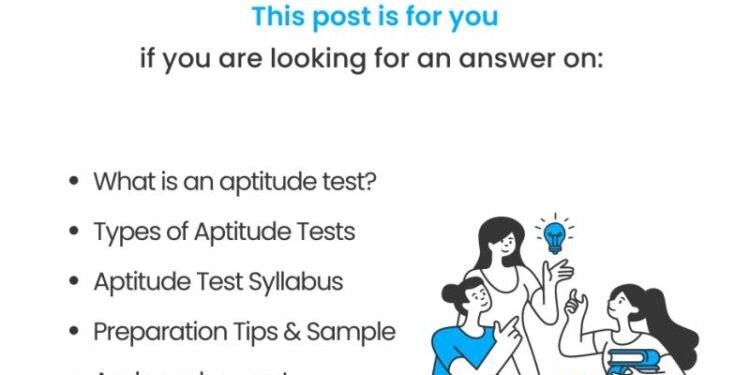Aptitude tests for hiring are an impartial and fundamental measure for short-listing appropriate professionals across industries. These tests evaluate candidates’ problem-solving abilities, logical and critical thinking, numerical reasoning, visual and spatial cognition, verbal comprehension, and more. This post details some data-backed insights explaining aptitude tests’ efficacies, nuances, applications, and significance in recruitment.
Pre-employment aptitude tests are an important hiring tool irrespective of the industry or job you are hiring for because they evaluate a candidate’s ability and potential. These tests evaluate cognitive abilities, specific skills, and aptitudes, offering valuable insight to surface top talent and identify and choose the right candidates for the right chances.
Factors that influence aptitude test accurateness
Several factors are there that can influence aptitude test accurateness, some of which are as follows:
- The test environment should be distraction-free so test takers all get the same chance to show their ability. No interruptions, just a smooth and steady experience.
- Motivation and engagement play vital roles in offering correct responses. Whether the candidates get hired or not, ensure that their test performance has an impact.
- Evaluate test reliability and validity during the development phase. The aptitude tests are accurate if they have undergone thorough and intensive validity testing during the assessment design process.
Benefits of aptitude tests
Including aptitude tests as part of your hiring process has several benefits. From assisting to inform your hiring decision to better knowing your present employees, there are many benefits of aptitude tests:
- Talent acquisition and selection
Aptitude tests assist you in discovering candidates whose aptitude and skills are a powerful fit for your roles. Employers who use aptitude tests report reduced turnover, better performance, and improved productivity than those who do not use them in hiring.
- Objective applicant assessment
These tests offer an unbiased evaluation of skills and abilities, enabling a fair comparison between candidates. These assessments level the playing field for applicants from varied backgrounds, taking the emphasis off of experience and education.
- Faster and more effective talent decisions.
Aptitude tests help eliminate the guesswork from the hiring process. Organizations report that using these assessments cuts their time-to-hire by over 50%.
- Personal and career development
Aptitude tests are not just for making hiring decisions. It helps managers find out strengths and areas for improvement in their reports. Aptitude tests can inform professional development, determine upskilling opportunities, and augment the talent mobility of your workforce.
How can an organization appoint the right talent with aptitude tests?
Recruitment assessment tests are all the fury in the corporate world, and there are big reasons for this.
- Find top-quality candidates
For any establishment, its main worth is human resources. It is tremendously significant to employ the most suitable candidates. When a candidate is suitable for the job role, this occurs. With such tests, it is possible to handpick a candidate who is ideal for a particular position.
- Very Reliable Results
When you use such tests from a top provider of quality recruitment tests, you can ensure the reliability of the results.
- Cost-Effective
Getting such tests done on candidates is money-making and will reduce the time spent interviewing several people.
Conclusion
Some people could be better for corporate culture or need to be fit for a particular job. That is acceptable. The corporate sector can make hiring far less stressful with recruitment aptitude tests. Aptitude tests are correct tools for evaluating individuals’ skills and abilities. Through their careful design, development, and validation processes, these tests offer objective measurements of aptitudes and valuable insights for talent identification and selection.












